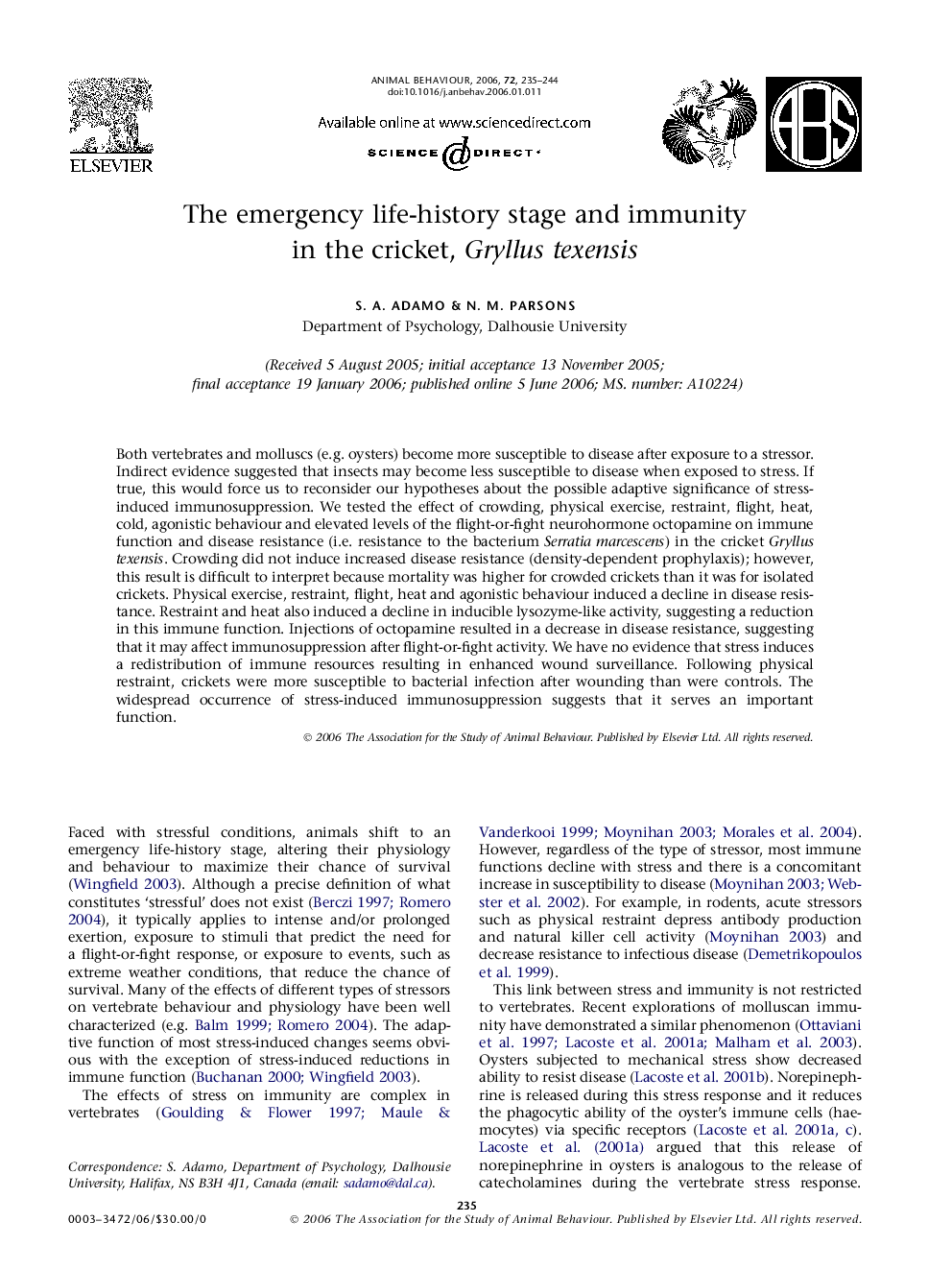| Article ID | Journal | Published Year | Pages | File Type |
|---|---|---|---|---|
| 2419141 | Animal Behaviour | 2006 | 10 Pages |
Both vertebrates and molluscs (e.g. oysters) become more susceptible to disease after exposure to a stressor. Indirect evidence suggested that insects may become less susceptible to disease when exposed to stress. If true, this would force us to reconsider our hypotheses about the possible adaptive significance of stress-induced immunosuppression. We tested the effect of crowding, physical exercise, restraint, flight, heat, cold, agonistic behaviour and elevated levels of the flight-or-fight neurohormone octopamine on immune function and disease resistance (i.e. resistance to the bacterium Serratia marcescens) in the cricket Gryllus texensis. Crowding did not induce increased disease resistance (density-dependent prophylaxis); however, this result is difficult to interpret because mortality was higher for crowded crickets than it was for isolated crickets. Physical exercise, restraint, flight, heat and agonistic behaviour induced a decline in disease resistance. Restraint and heat also induced a decline in inducible lysozyme-like activity, suggesting a reduction in this immune function. Injections of octopamine resulted in a decrease in disease resistance, suggesting that it may affect immunosuppression after flight-or-fight activity. We have no evidence that stress induces a redistribution of immune resources resulting in enhanced wound surveillance. Following physical restraint, crickets were more susceptible to bacterial infection after wounding than were controls. The widespread occurrence of stress-induced immunosuppression suggests that it serves an important function.
